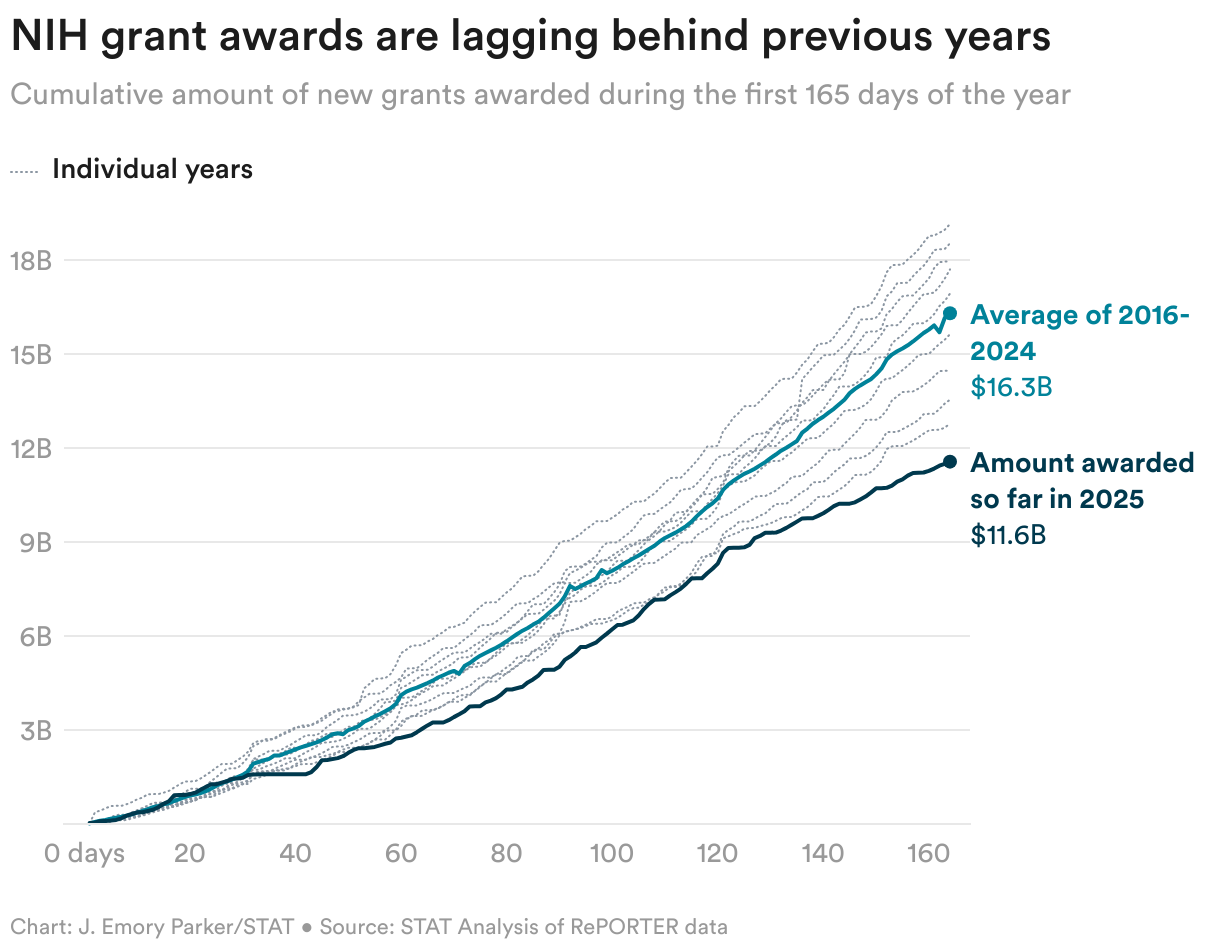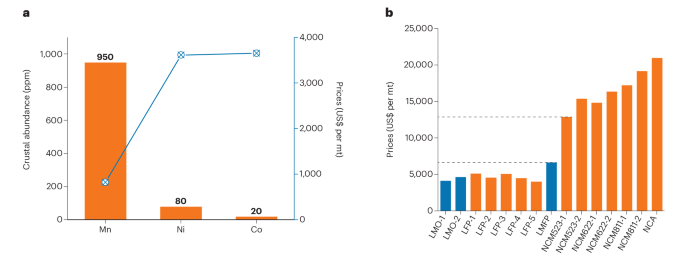Unlocking Business Efficiency: The 6 Core Functional Areas of ERP and How a Modern, Purpose-Built Solution Drives Transformation
Sponsored by Ternpoint Solutions What is an ERP? ERP stands for Enterprise Resource Planning. It’s a software system that integrates core business functions—like finance, purchasing, sales, inventory, and manufacturing—into one […]


Sponsored by Ternpoint Solutions
![]()
What is an ERP?
ERP stands for Enterprise Resource Planning. It’s a software system that integrates core business functions—like finance, purchasing, sales, inventory, and manufacturing—into one cohesive platform. By giving all departments a single source of data, ERPs streamline processes, reduce data duplication, and provide real-time insights for better decision-making.
ERP systems act as the central nervous system of day-to-day operations, helping efficiently manage crucial processes and operations by connecting them together in an integrated system. They can integrate planning, purchasing inventory, sales, marketing, finance, human resources, and more.
Some benefits of ERP include the free flow of communication between business areas, a single source of information, and accurate, real-time data reporting. ERP solutions have evolved over the years, and many are now typically web-based applications that users can access remotely.
The 6 functional areas of an ERP system

SALES OPERATIONS
Enhance efficiency with streamlined order processing, precise demand tracking and real-time inventory visibility.
Accelerate fulfillment and cash flow with e-commerce integration, integrated warehouse management, customer rebate & deduction tracking, sales commission tracking and payments, and ERP-to-EDI connections for faster order processing. Ensure on-time delivery with order status tracking and warehouse coordination. Maintain compliance through accurate invoicing, approval workflows, centralized documentation, and simplified sales reporting.

PURCHASING MANAGEMENT
Gain end-to-end procurement visibility with integrated vendor management, order processing, invoice matching, and raw material certification. Microsoft Dynamics 365 Business Central systematically identifies issues, streamline approvals, and manages spend efficiently, building a stronger supply chain.

WAREHOUSE MANAGEMENT
INVENTORY & SHIPPING
Automate warehousing processes to enhance efficiency and accuracy, including matching items to purchase orders, real-time inventory updates, and barcode scanning. Optimize storage, picking, replenishment, and shipping through mobile integration, route planning, and 3PL provider integration for seamless fulfillment.

PRODUCTION MANAGEMENT
Enhance manufacturing agility by integrating demand forecasts, material planning, production scheduling, quality and shop floor controls. Business Central offers real-time inventory insight, enabling swift adjustments and consistently on-time delivery of cost-effective, high-quality products.

FINANCIALS & REPORTING
Streamline processes such as accounting, budgeting, invoicing, bank reconciliation, and cash flow management. Comprehensive financial management tools act as a centralized hub for tracking and managing all financial transactions. Business Central allows for seamless reconciliation, ensuring consistency between accounting records and actual sub ledger balances.

PROJECT ACCOUNTING
Manage your business’s project initiatives, including customer-facing projects, internal projects, and capital expenditures, with features for time entry, purchasing, sales, and revenue recognition.
Benefits of switching to a cloud ERP system
A cloud ERP system regardless of industry offers several advantages over an outdated system. Some key industry agnostic benefits:
- Cloud ERP integrates data across departments providing a single source of truth, resulting in no longer needing to rely on disconnected spreadsheets or databases maintained outside of the system.
- Provides process automation and efficiency reducing inefficiencies and risk of human error.
- Can adapt and scale as the business grows accommodating new locations, customers, vendors, or markets.
- Includes built-in security features such as role-based access.
- Enhances order processing and inventory management, leading to better customer satisfaction, with integrations such as CRM, EDI, eCommerce, and shipping solutions.
- Centralized financial reporting for within and outside the organization.
- End-to-end visibility across the entire supply chain, enabling better decision making and risk management.
- Real-time visibility into inventory levels and locations.
- Optimize production schedules based on demand forecasts, resource availability, and raw material supply.
- Detailed insights into production costs, allowing businesses to identify inefficiencies and reduce waste.
- Cloud-based access allows employees to work from multiple locations (e.g., warehouses, offices, remote work).
How ERP can benefit the food and beverage industry
- Microsoft Dynamics 365 Business Central provides better tools to track fluctuating raw material costs irrespective of which costing method is used.
- It also helps track top selling items, seasonal trends and customer preferences easily
- Managing sales prices and discounts consistently, enhancing competitiveness.
- Ensuring accurate and automated tracking of sales rebates, improving invoice efficiency, profitability, and customer relationships
- Streamlining commission management, and reporting, for efficient payments and motivating sales representatives.
- ERP with EDI integration automates order processing, improving inventory management, facilitating supplier communication, reducing costs, ensuring compliance, and boosting customer satisfaction.
- An ERP system with an integrated eCommerce solution such as Shopify can streamline order processing and inventory management, enhance customer experience, provide real-time visibility into transactions, and offer scalability and adaptability for business growth.
- An ERP system with a Quality Module can bring significant benefits by enhancing product quality, ensuring compliance with industry standards, improving operational efficiency, and providing end-to-end traceability to meet strict FDA, HACCP, SQF, and FSMA regulations.
- ERP facilitates building an integrated supply chain by enabling real-time coordination between suppliers, production, warehousing, and distribution—minimizing delays, reducing spoilage, and ensuring faster, more reliable delivery of food and beverage products.
Case study: Implementing Microsoft Dynamics 365 Business Central for a food and beverage manufacturer
Transforming business operations with ERP integration
Introduction
In the food and beverage (F&B) industry, efficient management of operations and robust tracking mechanisms are crucial for sustaining growth and enhancing profitability. Our client, a food and beverage manufacturer, sought to streamline their business processes and improve overall efficiency. To achieve these objectives, we implemented Microsoft Dynamics 365 Business Central, a comprehensive ERP solution, integrated with several functional modules and workflows.
Implementation overview
The implementation of Business Central involved several key integrations and functionalities that collectively contributed to substantial business improvements:
- EDI Integration: Facilitating seamless communication and transactions with customers, suppliers, and 3PLs.
- Approval Workflows: Establishing streamlined processes for transaction approvals and segregation of duties.
- Quality Management Product Integration (By Ternpoint Solutions): Implementing a robust quality management product to ensure consistent product standards and compliance.
- Container Management Product Integration (By Ternpoint Solutions): Enhancing tracking and management of containers within distribution channels.
- Freshness Rules Product Integration (By Ternpoint Solutions): Ensuring compliance with freshness standards and regulations, thereby enhancing product quality control.
- CRM Integration through Power Automate: Consolidating transaction data for better customer relationship management.
- Royalties Tracking: Monitoring SKUs and transactions to ensure accurate and timely royalty payments.
Benefits to the client
The implementation of Business Central offered numerous benefits to our F&B client:
Enhanced efficiency and communication
EDI integration improved order processing and inventory management. Automation reduced errors, expedited processing, and ensured compliance, boosting customer satisfaction and reducing costs.
Streamlined approval workflows
Efficient workflows for transaction approvals and duty segregation enhanced internal controls, reducing fraud risk and improving productivity.
Robust quality management
Quality management integration maintained high product standards, ensuring compliance and customer satisfaction, strengthening brand reputation.
Container management
By integrating a container management product, the client gained improved tracking and management of containers within distribution channels, enhancing logistical efficiency and reducing losses.
Freshness rules
The integration of freshness rules ensured compliance with freshness standards and regulations, thereby enhancing product quality control and ensuring that only the best products reached customers.
Improved CRM with power automate
CRM integration unified customer data, allowing better tracking of preferences, trends, and top-selling items. This improved sales price and discount management, fostering market competitiveness.
Accurate royalties tracking
Business Central’s royalties tracking ensured accurate and timely payments, streamlining financial reporting and minimizing discrepancies.
Conclusion
The implementation of Microsoft Dynamics 365 Business Central for our client in the F&B industry significantly transformed their business operations. By leveraging advanced ERP functionalities and integrations, the client witnessed improved efficiency, communication, customer relationship management, accurate financial tracking, streamlined processes, and robust quality management. This comprehensive solution not only enhanced their profitability and compliance but also positioned them for sustainable growth in a competitive market.
Wrap-up
In conclusion, the adoption of a modern ERP system like Microsoft Dynamics 365 Central can revolutionize business operations across various industries, particularly in the food and beverage sector. By integrating essential functions and providing real-time insights, ERP systems streamline processes, enhance efficiency, and foster better decision-making. The case study of our food and beverage client demonstrates the transformative impact of ERP integration, showcasing improvements in order processing, inventory management, quality control, and customer relationship management. As businesses and regulations continue to evolve, embracing ERP solutions will be pivotal in achieving sustainable growth, maintaining compliance, and staying competitive in an ever-changing market.
















































































































































